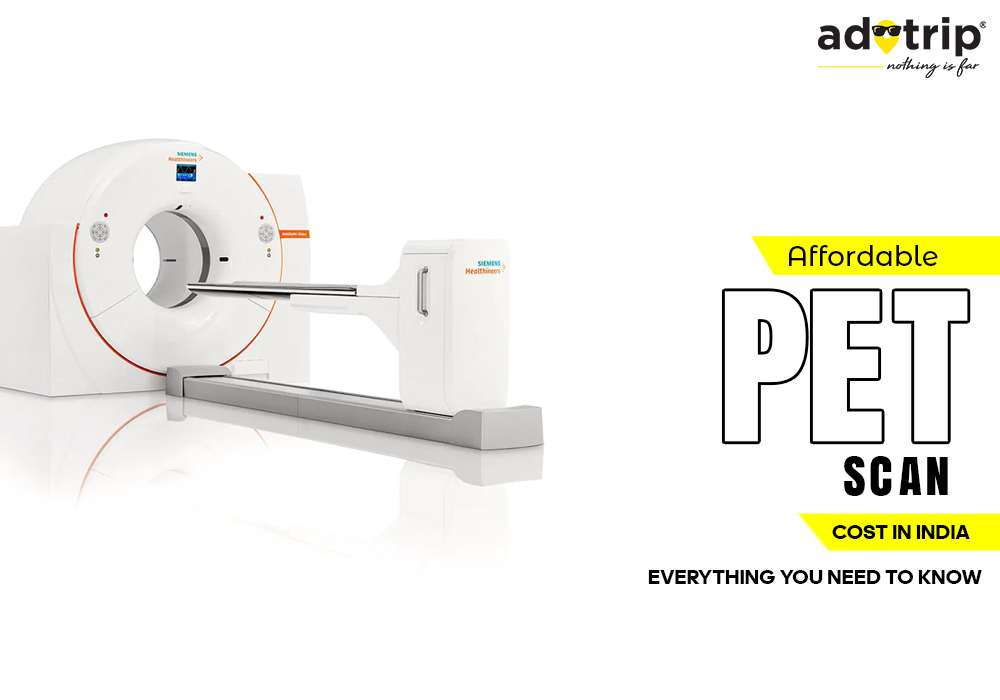
A diagnostic imaging method called a PET (positron emission tomography) scan creates finely detailed 3D images of the body's internal organs and tissues. It is frequently used to identify and treat various illnesses, including cancer, heart disease, and neurological diseases. However, many people may find the cost of PET scans to be a deterrent, particularly in nations like India, where healthcare expenses can be considerable. This thorough guide details reasonable PET scan costs in India, including average prices, cost-affecting variables, and money-saving advice. This article will assist you in making an educated choice regarding the price and calibre of a PET scan, whether you plan to get one for yourself or are looking into possibilities for a loved one.
A PET scan, or positron emission tomography, is a diagnostic imaging procedure that creates finely detailed 3D images of the body's internal organs and tissues using a small amount of radioactive tracer. It is frequently used to identify and treat various illnesses, including cancer, heart disease, and neurological diseases.
The advantages of a PET (positron emission tomography) scan are as follows:
Overall, a PET scan is a valuable diagnostic tool providing crucial details about several medical diseases, improving patient health and treatment outcomes.
Overall, the kind of PET scan that is employed will rely on the particular medical problem that is being assessed as well as the body part that is being scanned. The referring physician will choose the best PET scan for the patient.
To prepare for a PET (Positron Emission Tomography) scan, consider the following:
The patient receives a radioactive tracer before lying on a table and gliding into the PET scanner during a PET (Positron Emission Tomography) scan. The scanner picks up the positrons that the tracer emits to create finely detailed images of the tissues and organs inside the body. Patients must wear comfortable clothing free of metal objects, follow the doctor's directions about food and drink intake, and notify them of any drugs they take. In addition, a blood glucose test may be required for patients before their 30- to 90-minute PET scan.
The Positron Emission Tomography (PET) scan is typically regarded as a secure diagnostic procedure. The radioactive tracer poses a negligible risk of radiation exposure. However, the tracer's adverse effects, such as nausea, vomiting, or allergic responses, may affect patients. In rare instances, side effects from the injection or inhalation of the tracer could include bleeding or infection.
A PET scan's price might vary significantly depending on where it is done, where it is done, and why it is done. However, the price is often between $1,000 and $6,000 or more, and insurance may or may not cover it.
In summary, a PET scan is a proper diagnostic technique providing necessary details regarding various medical diseases. The price of a PET scan in India can change based on the facility and region. However, patients can now have this diagnostic test without breaking the bank, thanks to the expansion of affordable PET scan choices. Finding a trustworthy institution for the test and determining whether a PET scan is necessary should be done in consultation with a medical professional.
For individuals looking for care in India, adotrip.com provides full medical tourism services. From making travel and lodging arrangements to offering end-to-end support, we aim to ensure patients have all they need. Additionally, we offer details about chemotherapy treatments available in India so that patients can advance and make educated choices. You can trust Adotrip.com to go above and beyond to ensure a positive experience receiving medical care in India.
Q. What elements influence a PET scan's price in India?
A. The price of a PET scan in India can vary based on several elements, such as the facility and location, the kind of PET scan performed, the tools being used, and whether or not the scan is covered by health insurance.
Q. How frequently should I get a PET scan?
A. The evaluation of the medical condition and the patient's reaction to treatment will determine how frequently a PET scan is performed. Then, depending on the patient's unique situation, the doctor will decide whether additional scans are necessary.




